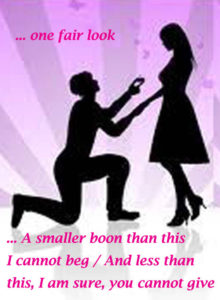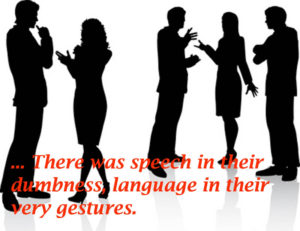 “And then the justice,
“And then the justice,
In fair round belly with good capon lin’d,
With eyes severe and beard of formal cut,
Full of wise saws and modern instances;
And so he plays his part.” (As You Like It, act 2, sc. 7)
Tips for use. Of course the justice referred to in the quote was in England. Of which (the English justices) Thomas Jefferson said, “For Heaven’s sake discard the monstrous wig which makes the English judges look like rats peeping through bunches of oakum.” Where ‘oakum’ is a kind of loose fiber from untwisted rope, and mixed with tar, used to caulk wooden ships. This is the fifth age of man in the total of seven. To locate the previous Continue reading









